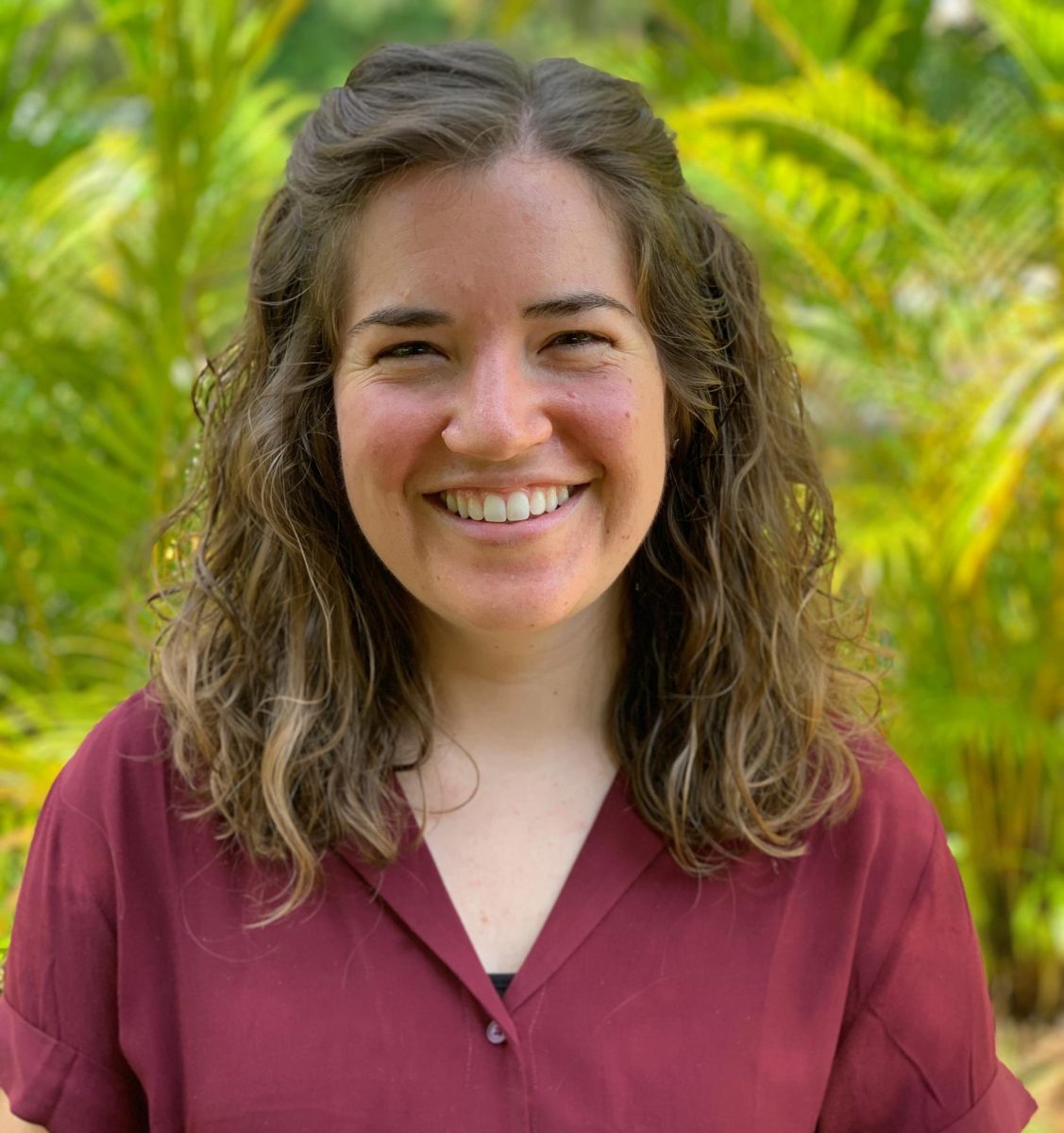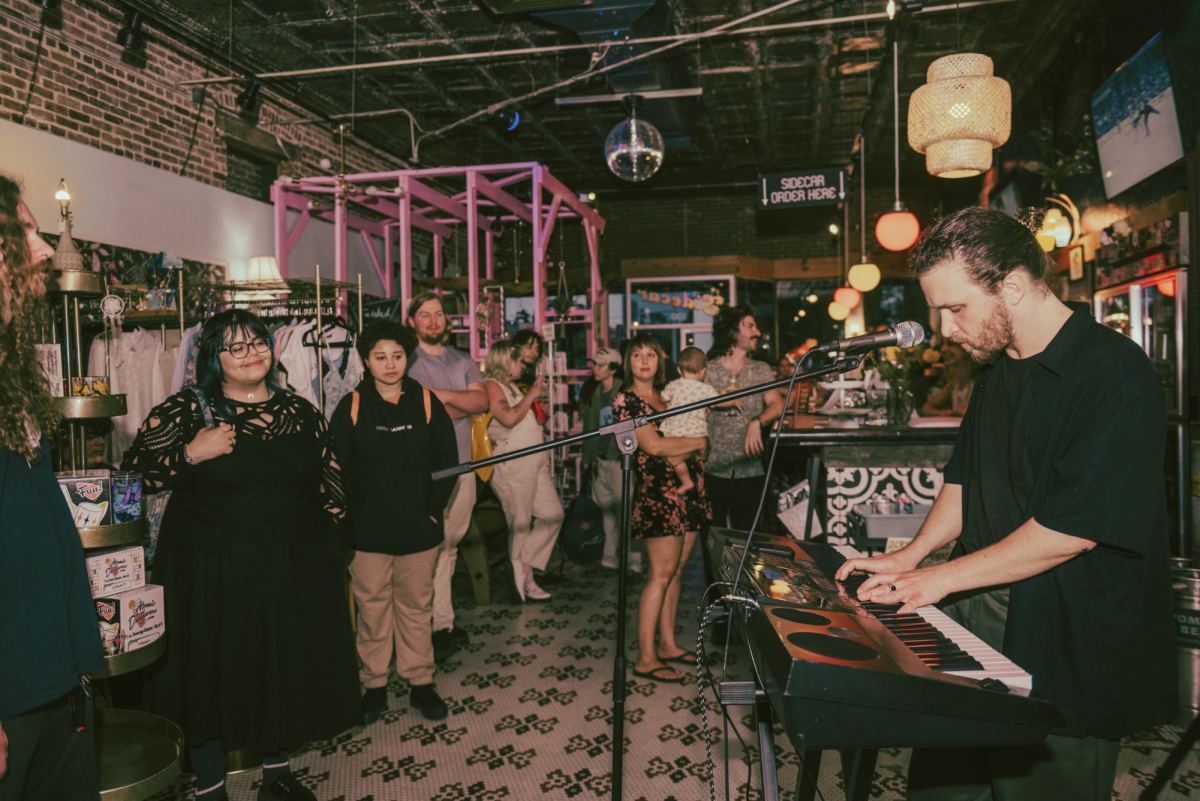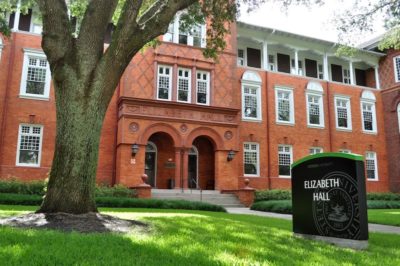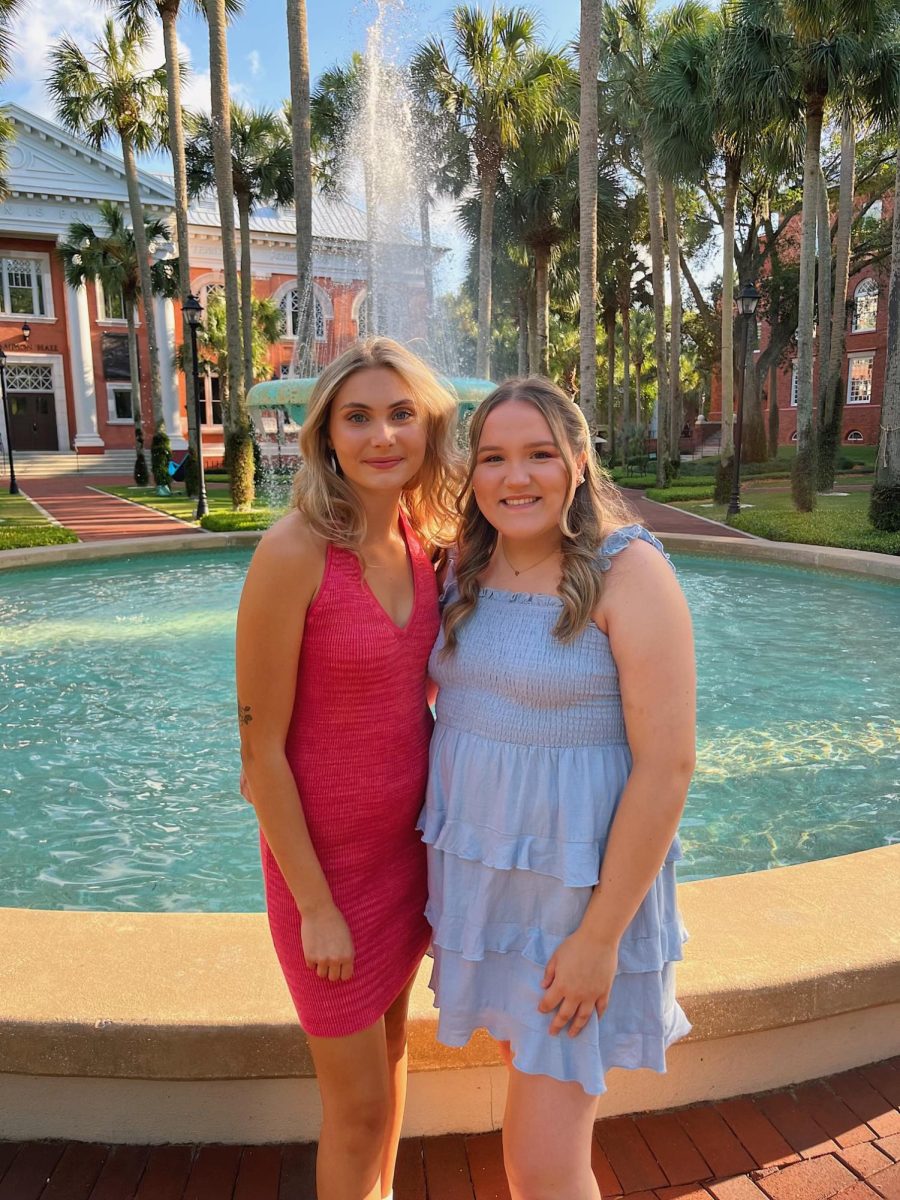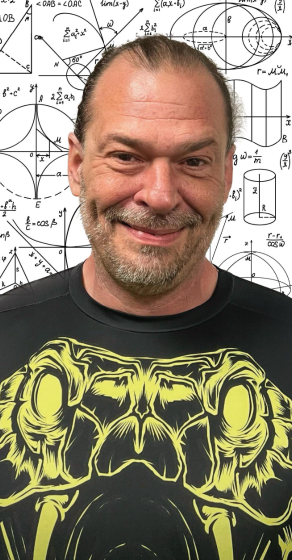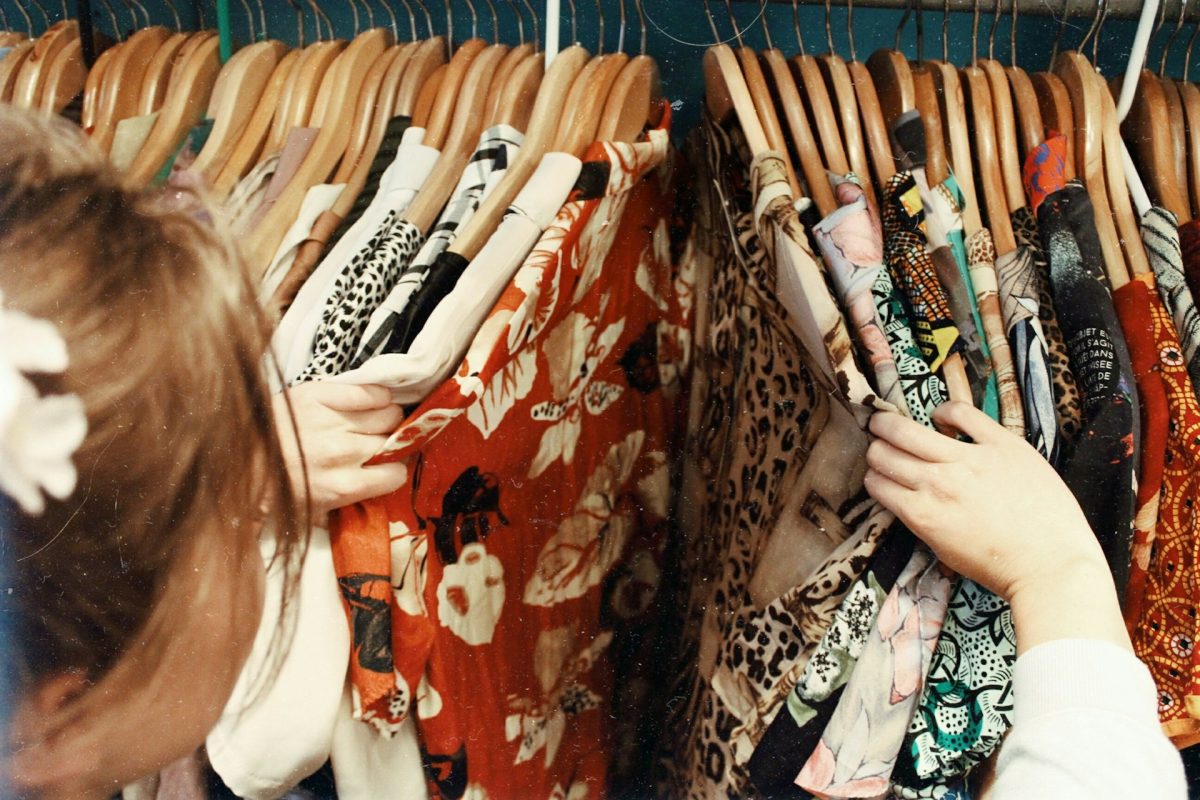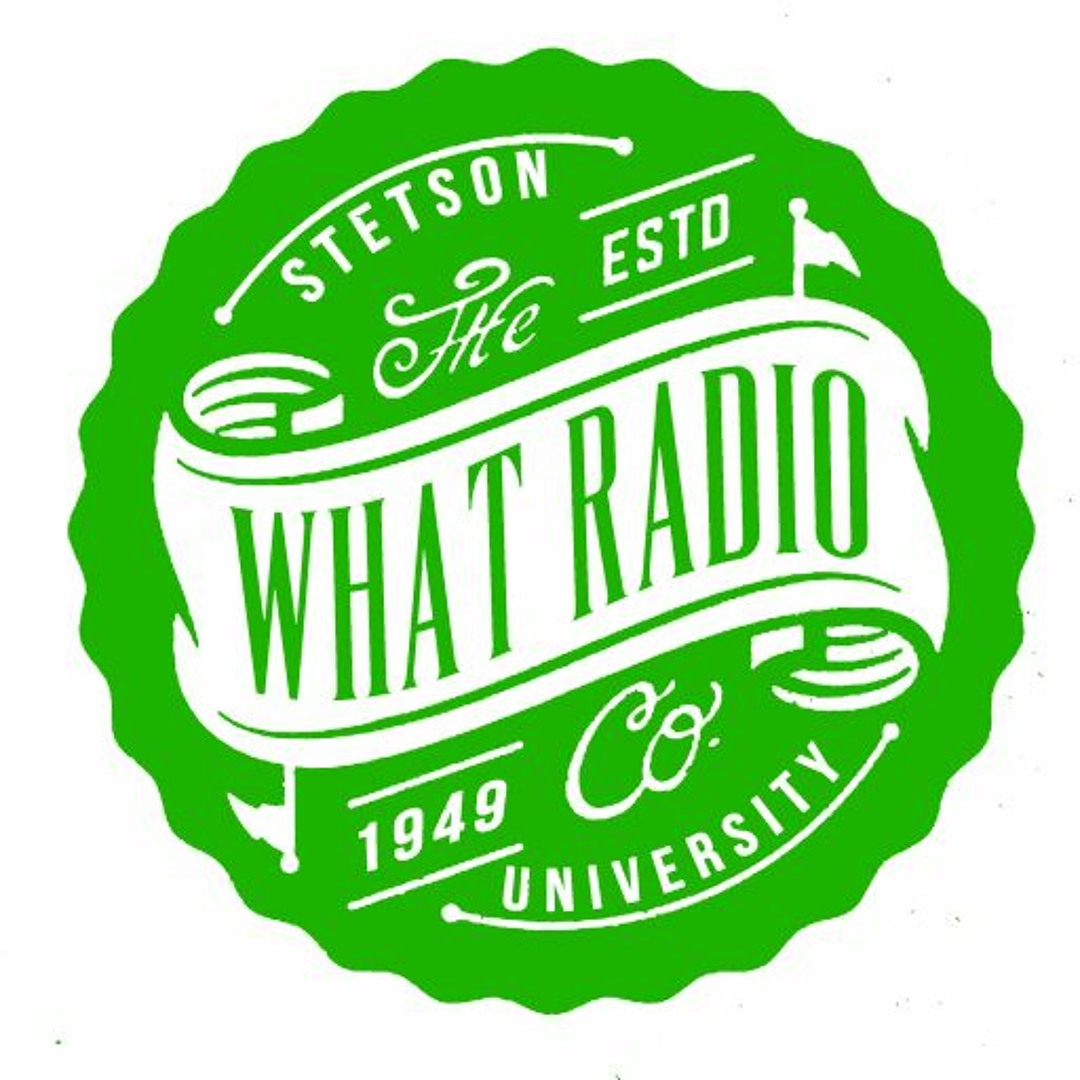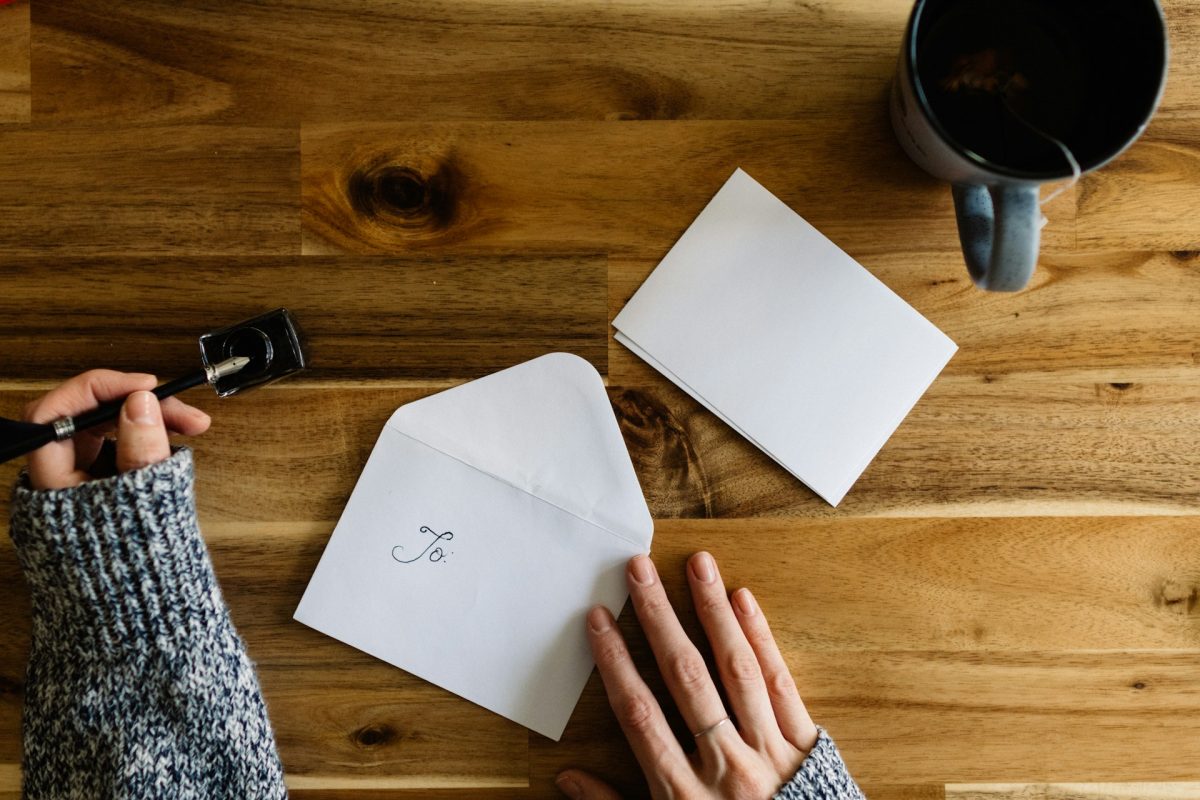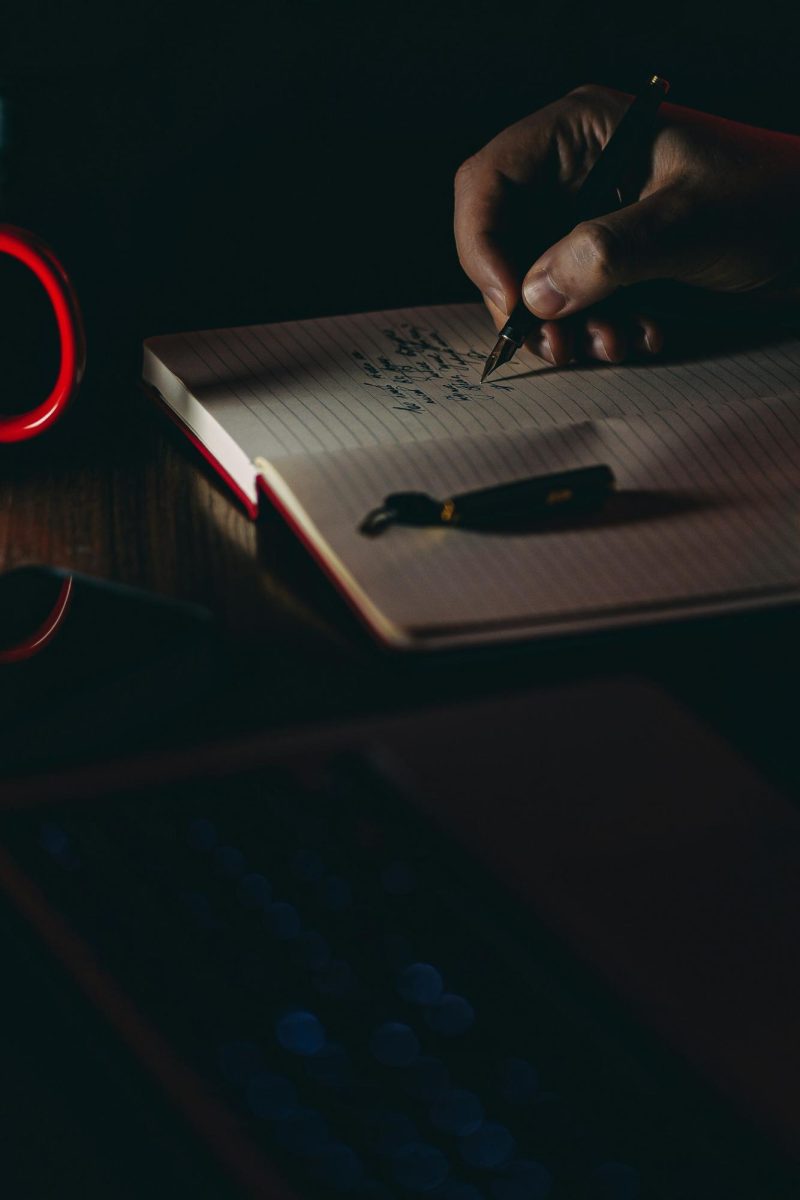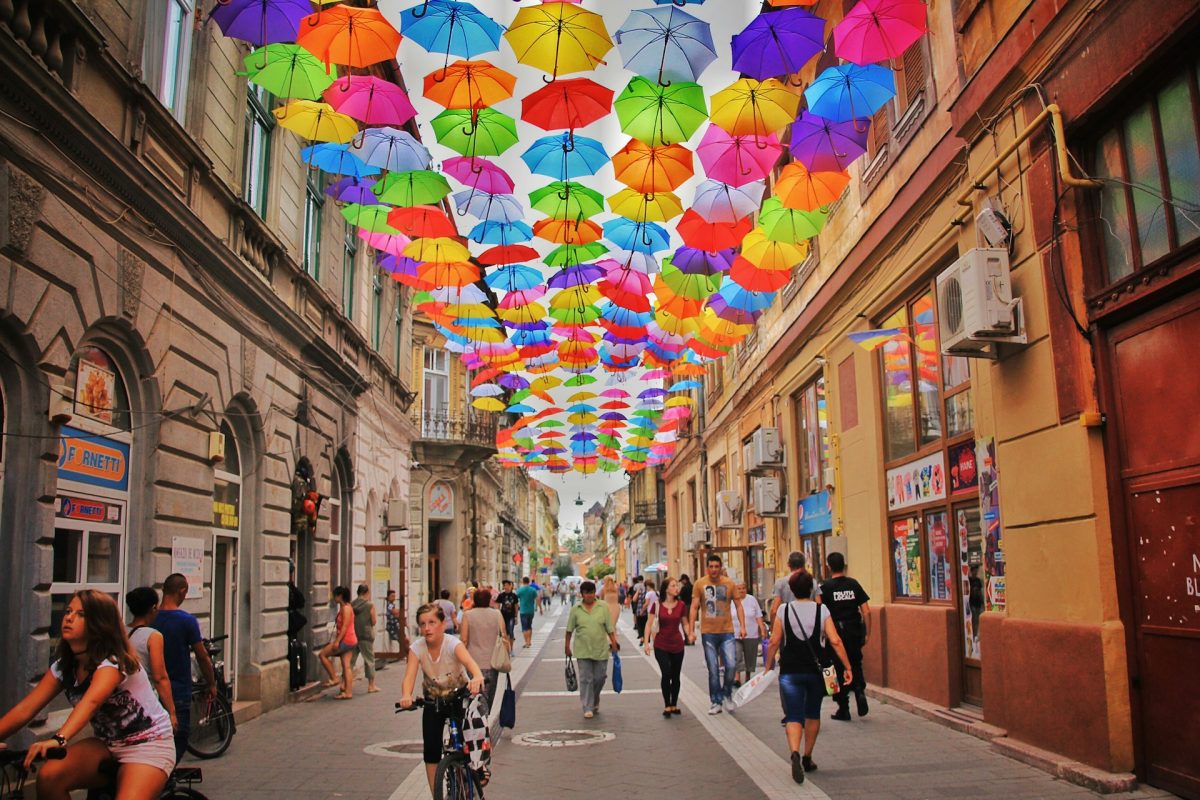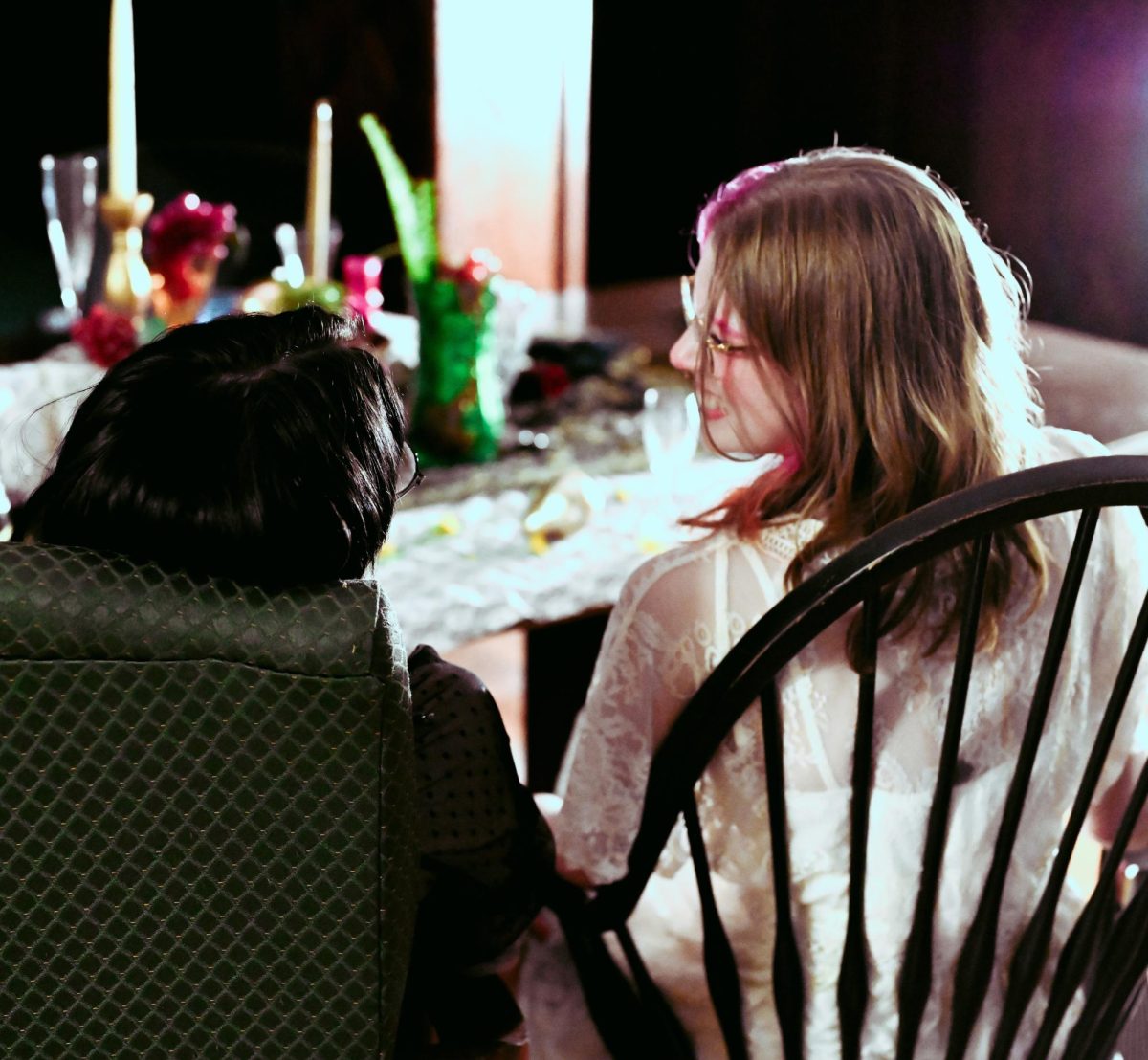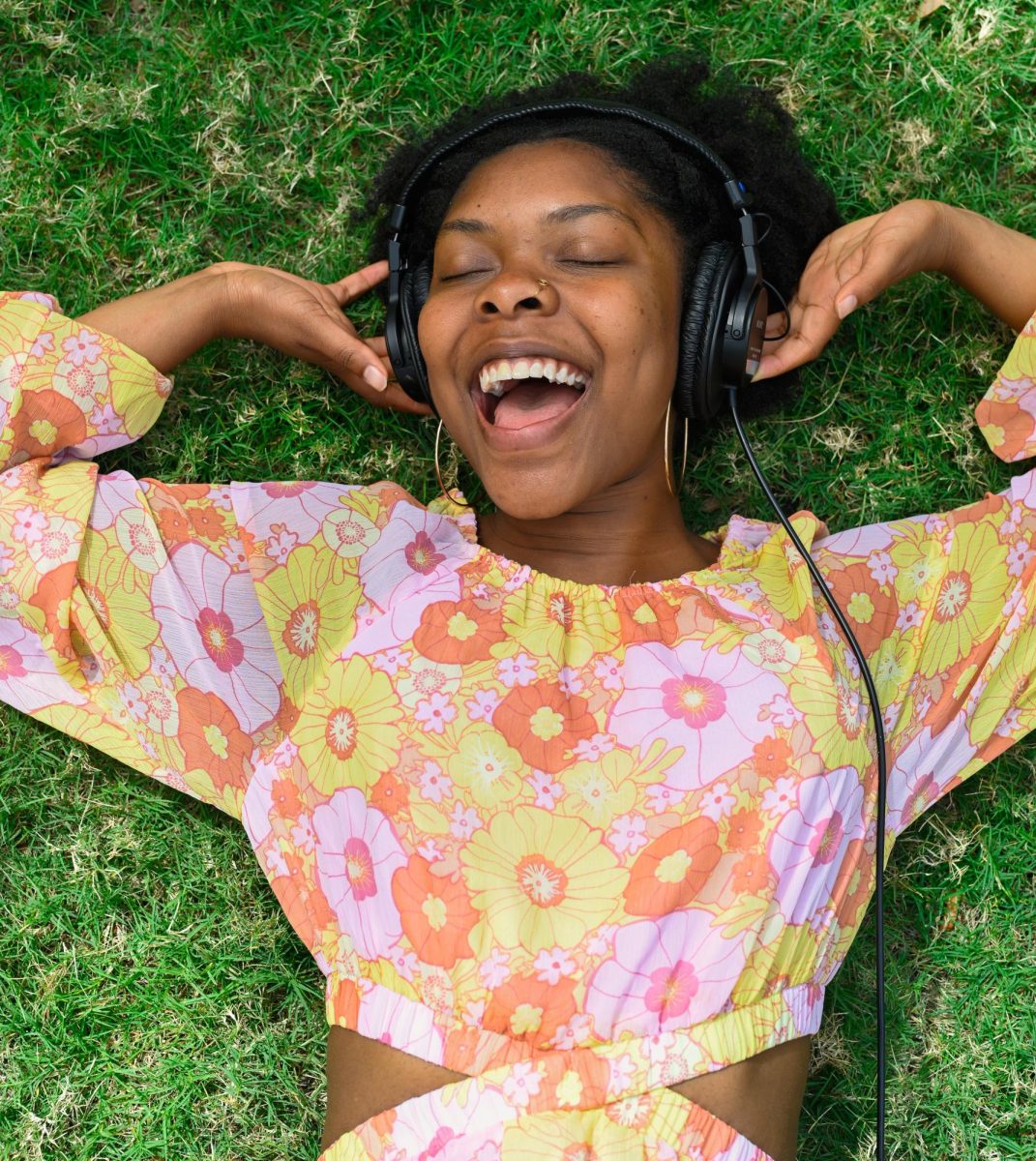I sat down with Dr. Sarah Cramer, Assistant Professor of the Sustainable Food Systems program in Stetson’s Department of Environmental Science, to dish on sustainability projects and campus consumption.
Q: What inspired you to study sustainable food systems?
A: Yeah, so my undergrad is in biology, and then my master’s is in public health. And as part of my master’s program, I had to do an internship out in the field, and I had an internship all lined up with the Department of Agriculture in the state where I was living in Missouri. And that fell through at the last minute, and I was kind of panicked. But my advisor said, oh, there’s this school gardening organization. They just got a huge grant, and they need help with garden education. And it was working at an elementary school, and I said, “Oh, I don’t really like kids. But I guess I can go do something.” And they said, “Oh, don’t worry, it won’t be a lot of like hands on work with kids.” But it turns out, that’s exactly what it ended up being was a lot of direct teaching kids in a garden. And long story short, I went on to work with that organization. For three years, I did a year of AmeriCorps with that same nonprofit. And then when I was ready to go to grad school for my PhD, I decided to continue studying garden-based learning in school gardens in an agriculture education program. So though I teach classes at Stetson, about the food system, more broadly, and sustainable food systems, my personal kind of focus is still on garden-based learning, whether that is in an elementary school, in college or in the higher ed in prison program.
Q: What role does experiential education play in your courses at Stetson?
A: It is, I like to think that’s the centerpiece. I try to incorporate experiential learning every chance I can. Because I think it is the thing that makes abstract knowledge, you know, book learning, actually matter to students and actually stick in their brains. And so the things that are most challenging to me are when I’m teaching in, like an online environment during COVID, or other times when we’ve had to teach in different ways. And we lose that connection to hands-on learning. So for example, this semester, I’m teaching a class about school food. And so the experiential part of that class is students actually go observe a school lunch at a local elementary school and write about that experience. I teach a practicum class where we garden in the Brown Hall teaching gardens every week, they do 30 hours of community engaged learning with a local farmer or food bank or other entity in the food systems, there’s a ton of experiential learning in that. And then I also teach a class this semester, that’s using our new teaching kitchen. So I don’t like lecturing, I don’t like standing in front of a class, I feel like all of the pieces that kind of build up to the experience are the most important. That kind of structure is what I like most about teaching, is getting students to the hands-on experience. And then we reflect about it and we talk about how it fits in with all of the other knowledge out in the world. But that’s the centerpiece of it.
Q: Do you have any current projects on campus that you work with students on?
A: Yeah, I work with Hatter Harvest, I’m the advisor of Hatter Harvest. And then also, I’m a beekeeper. And so we have one beehive right now on campus, but we’d like to have more. We had some trouble with them in the last couple of years. So helping students learn about beekeeping. I teach an FSEM that I’ll teach again this coming fall. It’s all about honey bees and beekeeping, and then I supervise senior research projects that are often very sustainability focused. So, for example, I just had a student who graduated in December, who did her whole project on campus food waste. So those are the main ones that I’m kind of involved in right now. And then obviously, using the garden in the kitchen and trying to be as sustainable as we can, composting things from the kitchen being intentional about not wasting food.
Q: What tips do you have for students who want to practice sustainability on campus?
A: My go-to is always to just take less food in the CUB. Every time I have a student work on food waste, they talk about these horror stories of like full sandwiches being sent back on the conveyor belt when they send their dishes back, like fruit that hasn’t been touched, desserts that haven’t been touched. So, I know that it is amazing to be able to take whatever you want in a free choice, style, cafeteria, but you can always go back and get more if you want more. So there’s a lot of issues in the food system that an individual action isn’t really the solution. So for sustainability in the food system overall, things like political activism, voting, working for really like, systems level change, those are those are really, really big challenges. But food waste is really one where your individual actions do make a big difference. And so just taking less food in the CUB, but being intentional about meal planning. If you’re going grocery shopping, using up the food in your refrigerator before you go and buy more. And then, absolute last worst case scenario would be, you know, composting things that are left. So we want to not lean on composting as a way to excuse using or not using all of our foods. So figuring out how to consume the food that you actually buy. That’s my one go-to in the food realm. And then I think another piece of that is really learning more about where your food comes from. Food is expensive to grow. It’s labor intensive to produce. It’s really resource intensive to get to us. And so the more we know about and appreciate all of the effort and labor and energy that goes into that, I think the more intentional we can be with our consumption.


